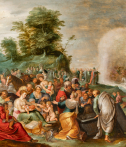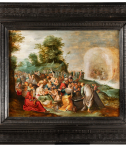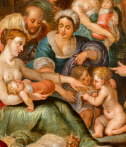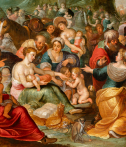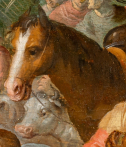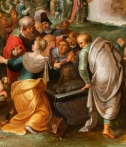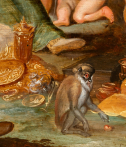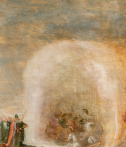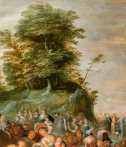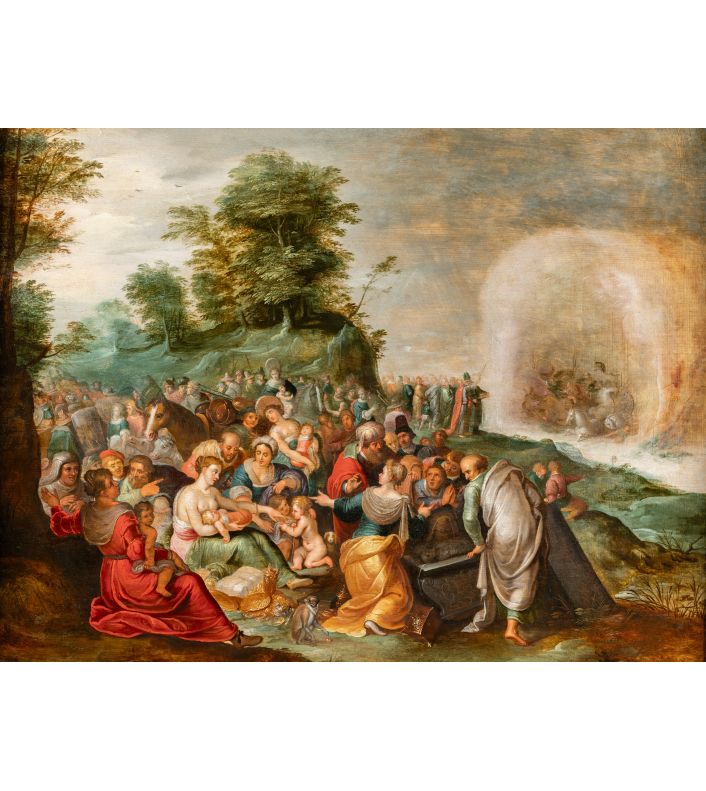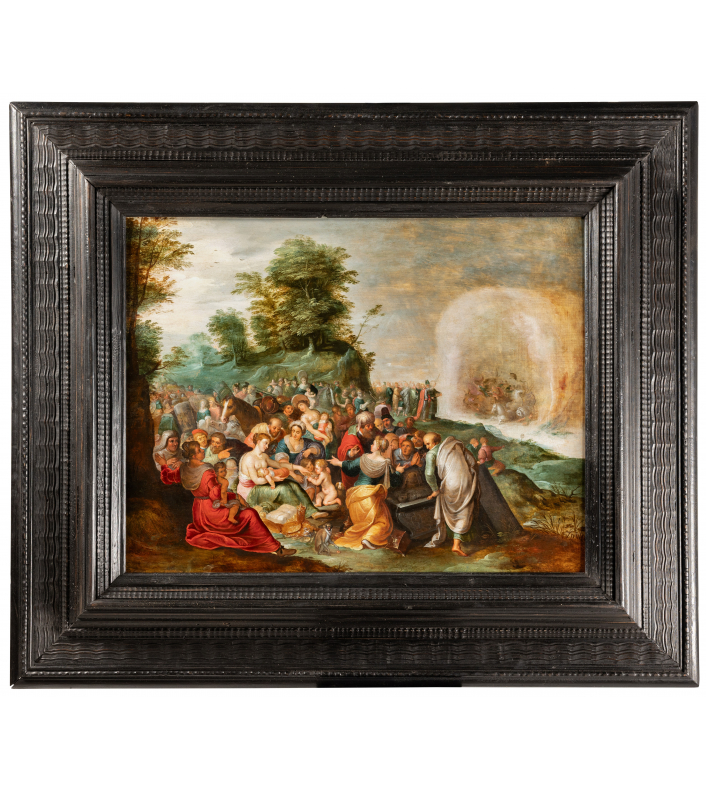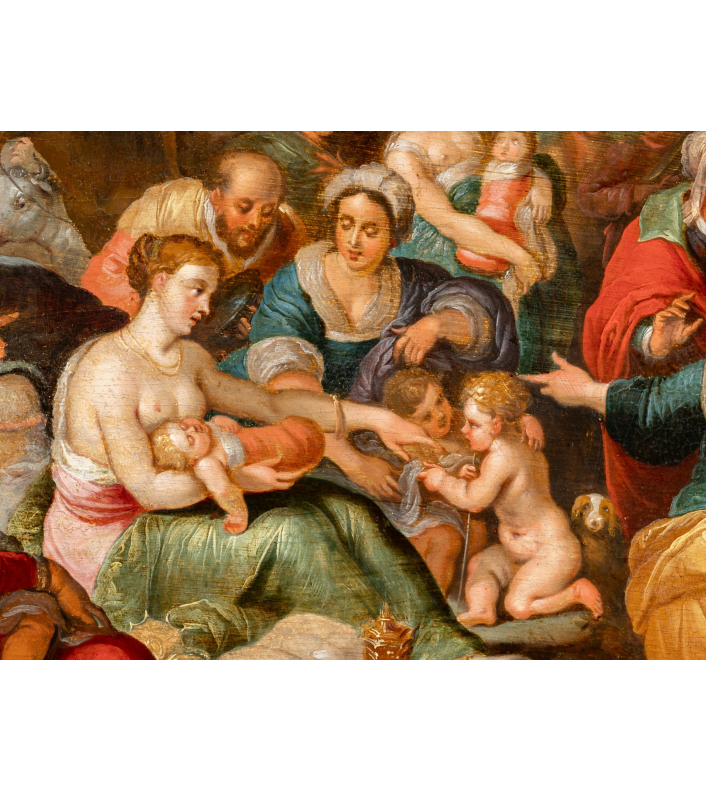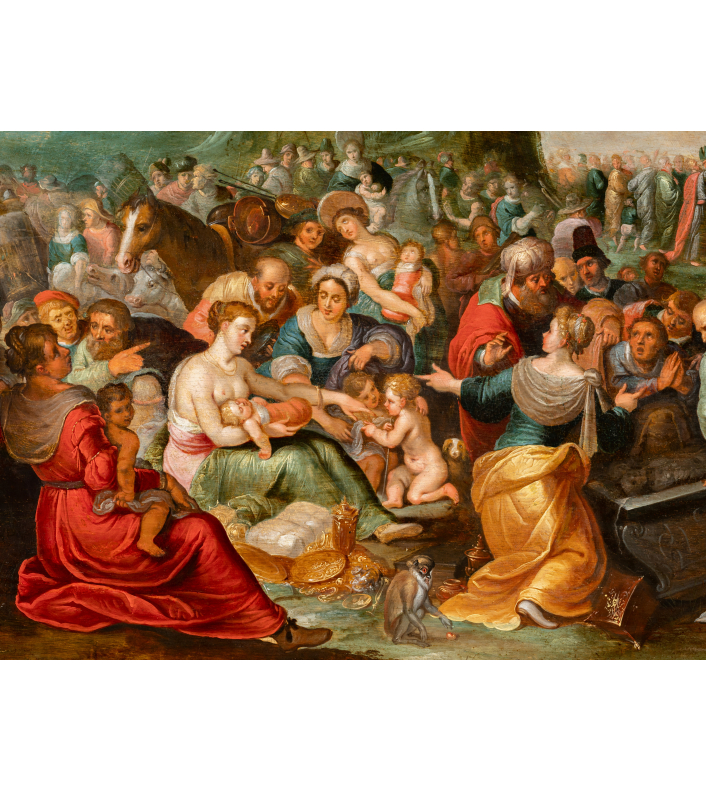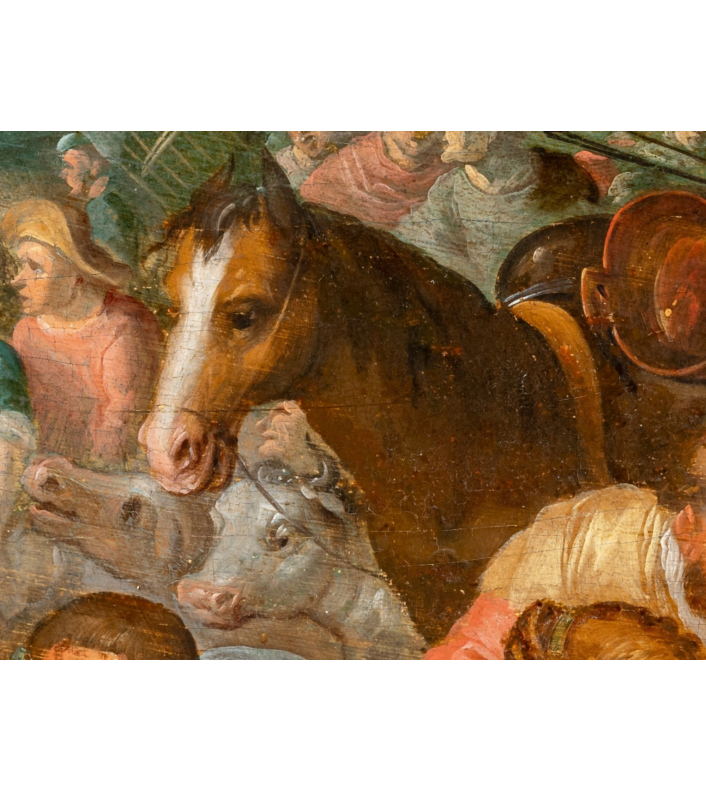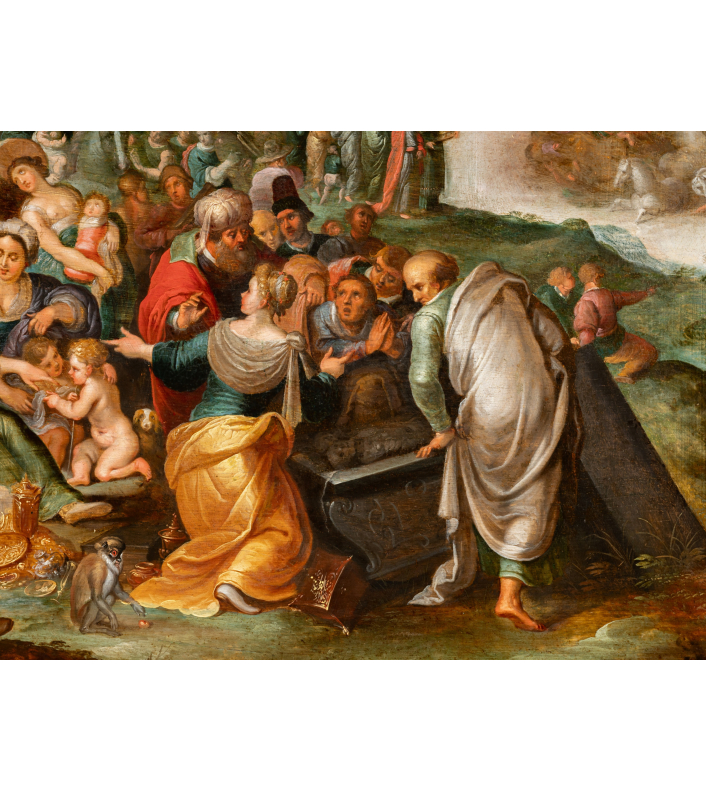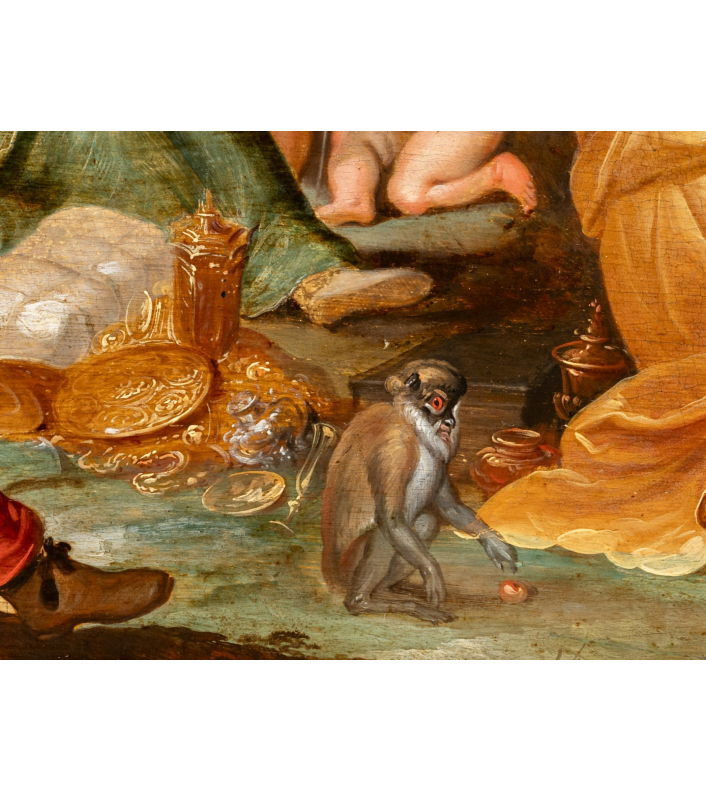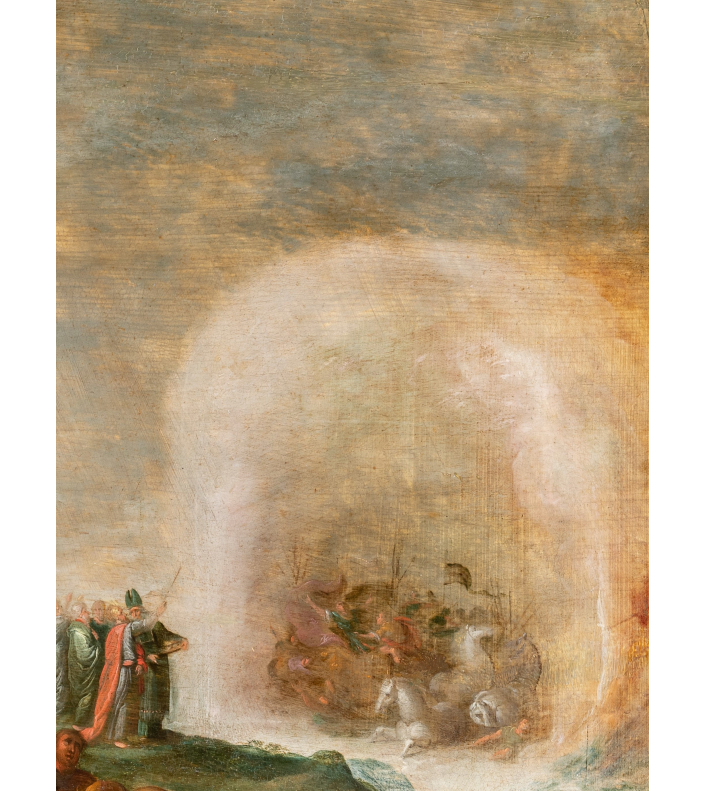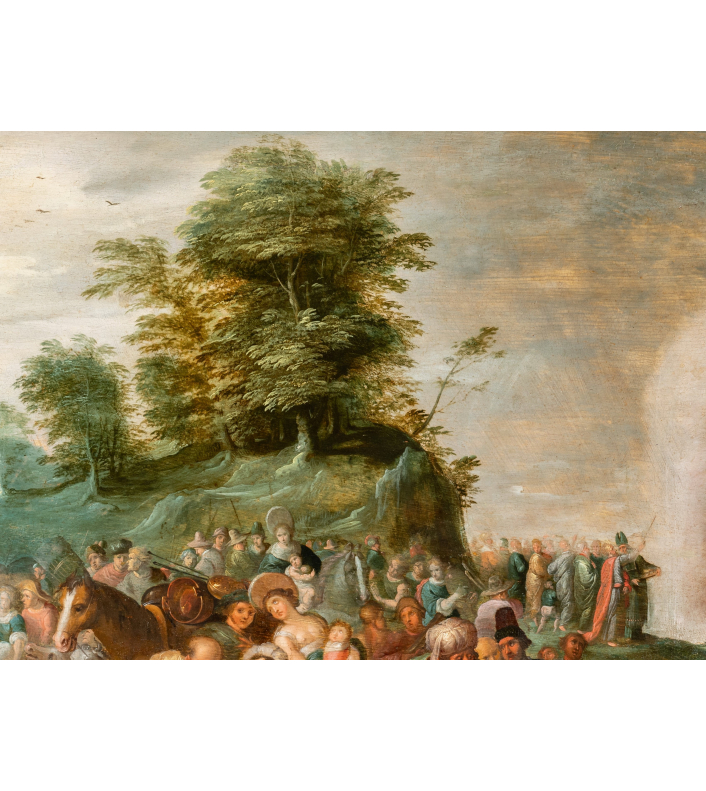Crossing of the Red Sea
Workshop of Frans Francken II (1581-1642)
17th century Antwerp School
Oil on oak panel
Dimensions: h. 49.5 cm, w. 64.5 cm
Moulded and blackened wooden frame with wide mouldings, with inverted profile from the later period.
Framed dimensions: h. 82 cm, w. 97 cm
Our panel illustrates one of the episodes of the Old Testament, recounted in the book of Exodus. After crossing the Red Sea, the Jewish people, safe and sound, rested on the shore while Pharaoh's army was swallowed up by the waves thanks to the intervention of Moses.
The crossing of the Red Sea comes as after centuries of captivity, the Jewish people, finally freed by Pharaoh, undertake the journey home, Pharaoh, filled with vengeance, decides to pursue them and so the Egyptian army perishes in the waves. The composition focuses in the foreground on an agitated group of figures gesticulating in the direction of the coffin with the remains of the patriarch Joseph, which has just been opened.
Many women with newborns make reference to the redemption of the firstborn. At their feet, strewn on the ground are the pieces of goldsmith's work stolen from the Egyptians before departure.
In the background we see Aaron accompanied by Moses who raises his staff in order to close the sea and annihilate Pharaoh's army in the giant whirlpool.
The profusion of numerous figures between the two planes gives the impression of an immense crowd, the horse standing out from the rest of the figures is a curious element invented by the painter, like the monkey seated in the foreground.
This way of mixing eras and continents is especially evident in the representation of the bucolic and hilly landscape typically Flemish with intense green colours, in contrast to the desert in which the Israelites found themselves after the departure from Egypt.
The painter's palette of diverse and varied colours further enriches the already elaborate composition.
Frans Francken painted the subject of the crossing of the Red Sea several times, varying the groups of figures and the compositional elements.
Several paintings relating this theme are mentioned in the monograph by Ursula Härting (Frans Francken II, 1989, pp. 236-239). Most of the versions of these works, executed by the workshop of Frans Francken and in particular by his son Hyeronimus Francken III, can be found in European museums as well as in private collections. In terms of content, the story is often paralleled with the political conflicts between Spain and the Republic of the Seven United Provinces, which culminated in the independence of the northern Netherlands in 1648.
Related works:
• Dorotheum sale, Vienna, 22/10/2019, by Hyeronimus Francken III, oil on copper, 50,5 x 67,5 cm
• Musée de Tessé, Le Mans, studio of Frans II Francken (1581-1642), oil on wood
• Koller sale, Zurich, 18/09/2009, lot n 3052, by Hyeronimus Francken III, oil on wood, 51,2 cm x 73,5 cm.
• Kunsthalle Karlsruhe, circa 1620, attributed to Hyeronimus Francken III, h. 47,5 cm, w. 71,8 cm
• Hamburg Kunsthalle, The Israelites Resting on the Red Sea, 1621, Tobias Verhaecht & Frans Francken II, oil on wood, h. 60.5, w. 105 cm
• Sale Rouillac, Vendôme 10/06/2018, oil on wood, h. 93,5, w. 123,5 cm. (the monkey is also present)
• Braunschweig, Herzog Anton Ulrich-Museum, oil on wood, h. 45 cm, w. 47 cm, Frans II Francken, c. 1625, signed ffranck (the scene around Joseph's tomb is very similar)


